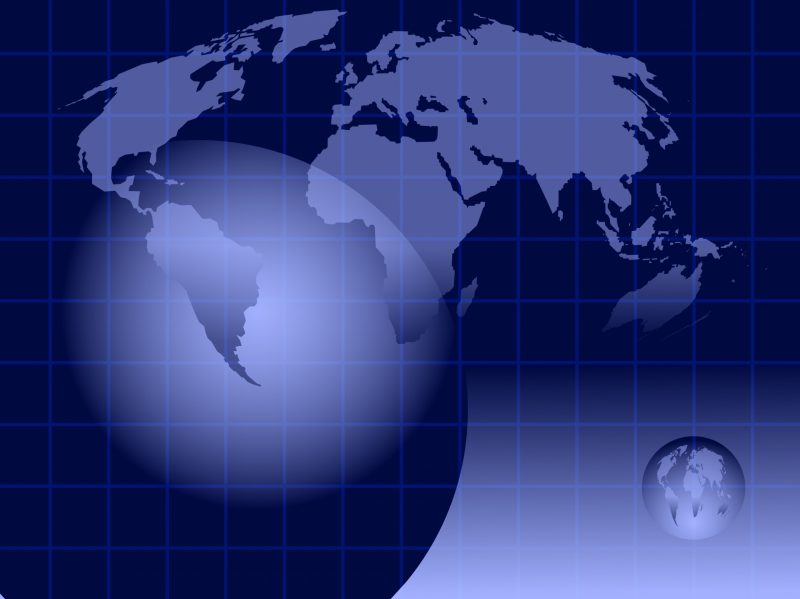The pre-pandemic trends away from the West have been accelerating and starting to take its shape gradually over the course of the pandemic, but have brought with them many paradoxes.
‘DISORDERED WORLD ‘
High Representative of the European Union(EU) for Foreign Affairs and Security Policy Josep Borrell’s expressions serve as a brief summary of the situation: “The world order was very much damaged before the pandemic. Multilateralism was in difficulties mainly because the US was preventing such an approach to world problems. But it’s clear that the world order today is not order. It is no longer in accord with the real distribution of power, which is very much different from the distribution of power at the end of the Second World War when US leadership took over… I think that we live in a disordered world and we need to rebuild a new multilateralism in which the European Union can play an important role.”
Borrell describes the situation in which the United States had lost its ability to be the center and to impose its universal laws with the term “a disordered world”.
The old world based on Atlanticist domination is finally over. As a result, it is somewhat predictable that the old world is doing everything in its power to declare that the New World is simply “disordered.”
But for nations, as is the case for living beings, creatures must adapt to new conditions, otherwise they would not be able to maintain their functions, as hypothesized in Charles Darwin’s Theory of Evolution.
Borrell’s statements and European countries’ ambition to participate in the foundation of this “multilateral system”, are the results of their instincts to survive in this New World.
These ambitions are not voluntary, they are the necessities born of historical and current conditions. Therefore, the ambitions and efforts of structures like the European nations will continue to exist for quite some time.
The political and the economic restoration efforts that we witness throughout the Old Continent, especially in Germany and France, are efforts both to maintain in the old world and to adapt for a “disordered world”, as Borrell puts it.
In order to understand the changes within the vassals of the United States, it is worth remembering these quotes from Mao Zedong, the leader of the Chinese Revolution, about the relationship between the old and new: “What is related to each other, is the two aspects of the contradiction. Everything has two contradicting aspects(…) According to the fundamental law of the dialectic, which is the unity of opposites, there are both a struggle and a unity among the opposites, that exclude, come together and transform into each other, under certain circumstances.”
Mao continues: “Of the two contradictory aspects, one must be principal and the other secondary. The principal aspect is the one playing the leading role in the contradiction. The nature of a thing is determined mainly by the principal aspect of a contradiction, the aspect which has gained the dominant position…. But this situation is not static (…) What is the replacement of a quality with another? It is the two opposite poles transforming into one another. Could it be any other way?”
What is happening in Europe today is the two opposite poles of conflict transforming into one another, just as Mao expressed. The main aspect of this restoration effort is the concern over maintaining presence in this New World.

Public domain pictures
WAVES OF THE GULF
Gulf countries, and particularly Saudi Arabia, are part of a similar trend that Europe is adopting against the United States. Many people think that this is related to the recent fluctuations in oil prices, as if this trend was a new phenomenon.
In May 2015 in my article for Aydinlik Newspaper titled “Yemen: The US intervention or a Middle East without the United States?” I asked the question of whether the Saudi interventions in Yemen had taken place with the United States in mind:
“Of course, we must stand against the extremist Riyadh Administration’s slaughter of the Yemeni people, but we should also not hesitate to discuss whether this intervention was carried out as part of the plans of the United States, or whether it was the product of a solution without it (…) Are the events that took place in the region a part of the plan under the US control, or are these the unintended reflections of a multipolar world now that Washington has withdrawn from the region?”
It is still important to seek the answer to these questions today, something which at the time was criticized instead of being considered.
As various events from around the world have shown, we are experiencing the first signs of post-Washington multipolarity.
It is a positive thing that governments are shifting away from US imperialism and beginning to take a stance against it. But it is important to remember that the vast majority of those who have shifted away from that center did so not for any progressive purposes, but instinctively, to survive and to maintain their existence; this is an important point when pursuing our policies.
The steps taken away from that center can come in negative shapes, such as we saw in the Saudi invasion of Yemen.
Insisting on two central power poles means insisting on the ancient Cold War patterns. Such an approach can not help us in analyzing the multilateral clashes at hand and events that will follow. The new era will not only impose new rules, it will also give birth to new policies.

















Leave a Reply